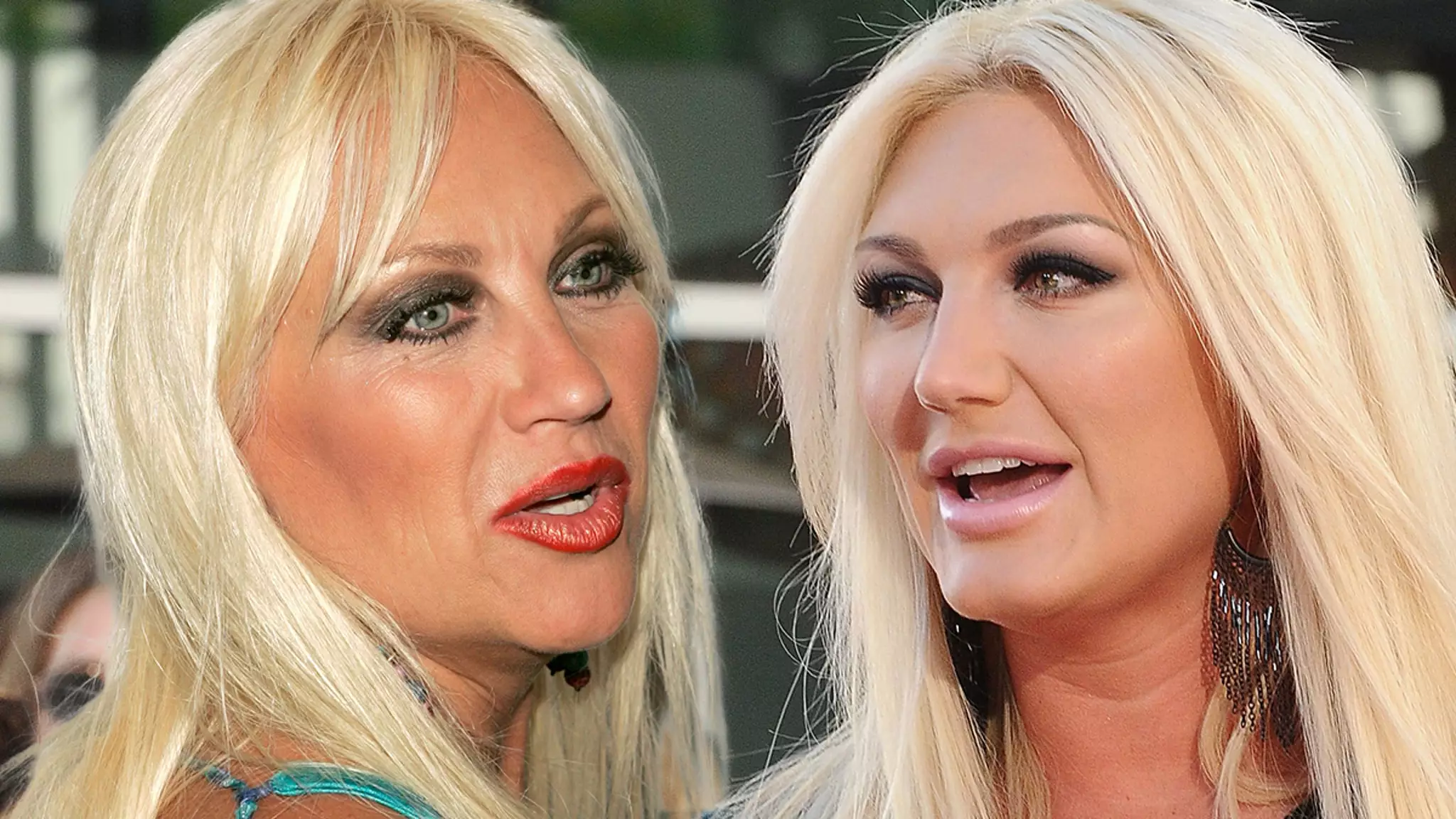In the spotlight of celebrity life, the dynamics of family relationships can rarely stay sheltered from the prying eyes of the public. Recently, the tumultuous exchanges between Brooke Hogan and her mother, Linda Hogan, have not only captivated fans but also raised eyebrows regarding familial responsibility and the psychological scars inflicted by parental relationships. The public dialogue they’ve initiated straddles the thin line between personal grievances and a spectacle for mass consumption. At the heart of this engaging battle lies an underlying urgency for truth—a truth that both sides claim to uphold.
Clashing Narratives and Accusations
Brooke Hogan’s fiery rebuttal against her mother’s accusations of narcissism presents a layered complexity to their relationship. It’s clear that both women harbor strong feelings about their shared history, but the divergent accounts of their experiences suggest an irreconcilable rift. Brooke’s firm stance against Linda’s assertions—the mother’s dismissive claims about Brooke’s alleged past and character traits—highlights a shared theme in familial disputes: the struggle for validation. While Brooke clamors for acknowledgment of her abusive past, Linda defends herself vehemently, suggesting instead that Brooke’s portrayal of their relationship is tainted by her alignment with her father, Hulk Hogan.
This conflict raises numerous psychological questions. It becomes apparent that the family narrative we’ve been given may largely depend on individual perspectives, marred by their respective experiences. Brooke insists on providing proof through photographs and memories to substantiate her claims, while Linda leans on a more emotional defense—casting herself as both a mother and a victim in her daughter’s narrative.
A Social Media Showdown: The Role of Digital Platforms
What’s particularly striking about this feud is how it thrives in the realm of social media. These outlets have transformed the way individuals express conflict, granting them the ability to share privileged family drama with an audience that can be as familiar as family members or as distant as strangers. Brooke’s use of Instagram to counter her mother’s statements exemplifies how social media not only amplifies personal grievances but also fashions them into public events.
Linda’s choice to utilize platforms like Facebook for her lengthy retorts adds a layer of public theater to an already contentious situation. It’s intriguing to consider how social media influences not just the message but also the audience’s perception of these familial issues. The quick turnarounds and direct addresses have created a real-time conversation that may lack the nuance necessary for genuine resolution, instead turning the family dynamic into a perpetual cycle of defensiveness and provocation.
The Psychological Weight of Public Disputes
In dissecting the Hogan matriarch and her daughter’s exchanges, one cannot overlook the potential psychological fallout that accompanies public familial disputes. Each accusation reverberates beyond mere words, creating waves of emotional distress that could profoundly impact both individuals. The assertion of narcissism and allegations of abuse, whether proven or unproven, can have lasting effects on one’s mental health, further complicating already strained relationships.
Brooke’s unequivocal descriptions of verbal, mental, and physical abuse chronicle severe psychological implications that, if true, could have devastating effects on her self-identity and interpersonal relationships. On the other hand, Linda’s projections regarding her daughter’s alleged narcissism hint at a fractured self-image arising from constant comparison and scrutiny. If the claims from either side hold truth, the psychological implications stretch far beyond typical parental disappointment—suggesting a cycle of trauma that demands acknowledgment and healing.
Confronting the Reality of Familial Relationships
Ultimately, this saga illuminates the often-painful reality of familial relationships, underscoring the complexity of love intertwined with hurt. For Brooke and Linda Hogan, the path to understanding and resolution will not be resolved through social media battles or public declarations. The dialogue around narcissism, abuse, and familial loyalty is rife with emotional weight that necessitates a supportive dialogue rather than combative exchanges.
As viewers, we can only observe their journey, keeping in mind the tangled web of human emotions that comes wrapped in family ties. In this charged atmosphere, the issue is not simply about who is right or wrong, but rather an exploration of deeper issues of conflict, validation, and ultimately, the yearning for connection amidst misunderstanding and turmoil.

